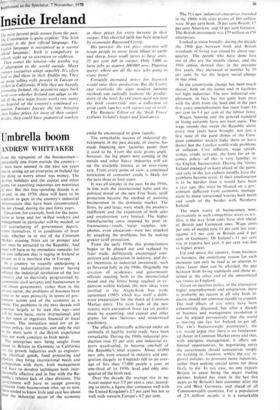Inside Ireland
The most fervent pride comes from the past. The Constitution is quite explicit: 'The Irish language is the first official language. The English language is recognised as a second official language.' Irish is compulsory in schools right up to seventeen or eighteen. Then comes the tension—the terrible tug of adaptation to the world outside. Many younger executives adapt superbly. It's often hard to find them in their Dublin HQ. They are away selling milk powder in Taiwan or clothes in California. While they are happily promoting Ireland. the argument rages back home over whether Ireland can adapt to the EEC. If the new wage freeze works out, many are hopeful of the country's continued ex- pansion. Farmers foresee the EEC bringing them higher prices for most of their output. Besides, they could have guaranteed markets
at these prices for every increase in their output. This cheerful faith has been attacked by economist Raymond Crony.
His forecast: the EEC price structure will tempt people to move from tillage to cattle and sheep, from small farms to large units. 35 per cent fall in output. Only 5.000 in farm jobs as against 300,000 now. Plaintive query: where are all the new jobs going to come from?
Certainly increased prices for livestock would raise their production. But the Crony case overlooks the ways modern farming methods can radically improve the produc- tivity of the land. So EEC entry need not turn the Irish countryside into a collection of great cattle ranches with masses out of work.
The Business Editor of the `Irish Times' explains Ireland's hopes and hindrances.






















































 Previous page
Previous page